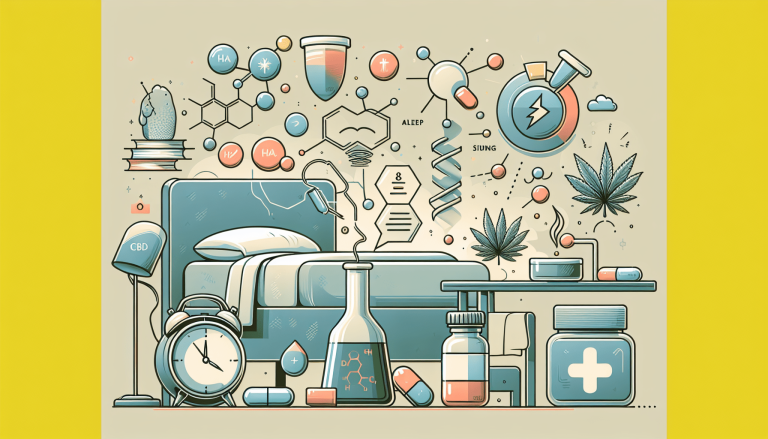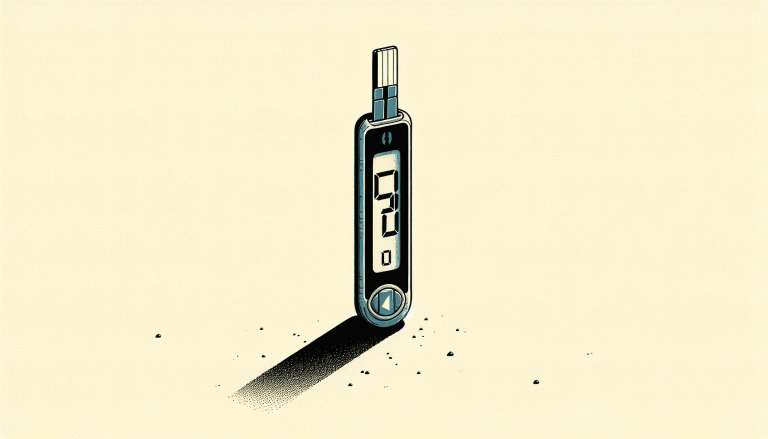Who Should Avoid Taking CBD?
If you’ve been considering trying CBD, it’s important to understand that while it can offer numerous potential benefits, it may not be suitable for everyone. Before you dive headfirst into the world of CBD products, take a moment to consider whether or not it is the right choice for you. While CBD is generally well-tolerated, there are certain situations and conditions where it’s best to exercise caution. In this article, we’ll explore who should avoid taking CBD to ensure you have the information you need to make an informed decision about your wellness journey.
Pregnant and breastfeeding women
Lack of research on CBD’s effects on pregnancy
If you are pregnant or breastfeeding, it is important to exercise caution when considering the use of CBD. Currently, there is a lack of comprehensive research on the effects of CBD on pregnancy. Without sufficient data, it is difficult to determine whether CBD is safe for both the mother and the developing fetus.
Potential risk to the developing fetus
Since there is limited research available, it is difficult to assess the potential risk that CBD may pose to the developing fetus. It is always better to err on the side of caution and avoid CBD during pregnancy unless specifically recommended by a healthcare professional. The developing fetus is particularly vulnerable during this crucial period, and it is important to prioritize their safety and well-being.
Possible transfer of CBD to breast milk
For breastfeeding women, it is essential to consider the potential transfer of CBD to breast milk. While research on this topic is limited, some studies have indicated that CBD can indeed be detected in breast milk. Although the effects on the nursing infant are still unclear, it is advisable to consult with a healthcare provider before using CBD while breastfeeding to ensure the health of your baby.
Children and adolescents
Limited research on CBD’s effects on developing brains
When it comes to children and adolescents, the effects of CBD on developing brains are not yet well-understood. Research in this area is limited, and it is important to proceed with caution. The developing brain undergoes significant changes during childhood and adolescence, and the introduction of CBD could potentially interfere with normal brain development.
Potential impact on brain development and cognitive function
Given the limited research available, it is difficult to determine the potential impact of CBD on brain development and cognitive function in children and adolescents. As the brain is still maturing during these crucial stages, it is prudent to avoid the use of CBD unless specifically recommended by a healthcare professional. Protecting the long-term cognitive health of young individuals should always be a top priority.

Individuals with liver problems
CBD may interact with liver enzymes
If you have liver problems, it is important to exercise caution when considering the use of CBD. Research suggests that CBD may interact with liver enzymes, potentially affecting their normal function. Liver enzymes play a crucial role in metabolizing substances in the body, and any disruption to this process could have adverse effects on liver function.
Possible adverse effects on liver function
The potential interaction between CBD and liver enzymes raises concerns about possible adverse effects on liver function. Individuals with pre-existing liver conditions or compromised liver function should consult with their healthcare provider before using CBD. It is crucial to prioritize liver health and ensure that the use of CBD does not exacerbate any existing liver problems.
People taking certain medications
CBD may interact with specific medications
If you are taking certain medications, it is important to be aware of potential interactions with CBD. Some studies suggest that CBD can interfere with the metabolism of certain medications, possibly affecting their efficacy or causing unwanted side effects. It is essential to consult with a healthcare professional before using CBD, especially if you are taking medications for a specific medical condition.
Possible side effects or reduced efficacy of medications
The potential interaction between CBD and medications can lead to several outcomes. It is possible that CBD may increase the risk of side effects from certain medications or reduce their efficacy. To ensure the best possible outcomes for your health, it is crucial to inform your healthcare provider about your CBD use and discuss any potential interactions or effects.

Individuals with a history of drug abuse or addiction
Potential risk of triggering cravings or relapse
If you have a history of drug abuse or addiction, it is important to approach the use of CBD with caution. While CBD itself is not considered addictive, it may still pose a risk to individuals with a history of substance abuse. Consuming CBD products could potentially trigger cravings or contribute to a relapse in individuals struggling with addiction.
Lack of research on CBD’s effect on addiction
There is currently a lack of comprehensive research on the effects of CBD on addiction. The potential benefits or risks of using CBD as part of addiction recovery are not yet fully understood. It is advisable to consult with a healthcare professional who specializes in addiction treatment before incorporating CBD into your regimen.
Individuals with low blood pressure
CBD can cause a temporary drop in blood pressure
If you have low blood pressure, it is important to be aware that CBD can cause a temporary drop in blood pressure. This drop may result in dizziness, lightheadedness, or even fainting. It is essential to monitor your blood pressure closely and consult with a healthcare professional before using CBD if you already have low blood pressure.
Possible adverse effects for people with already low blood pressure
For individuals who already have low blood pressure, the temporary drop caused by CBD could lead to adverse effects. It is crucial to prioritize your well-being and safety by discussing your blood pressure concerns with a healthcare provider. They can provide guidance on whether CBD is suitable for you and how to manage any potential adverse effects.
People with a sensitivity to CBD
Possible allergic reactions
Some individuals may have a sensitivity or allergic reaction to CBD. Allergies can manifest as skin rashes, itching, or even respiratory symptoms like shortness of breath or wheezing. If you have experienced allergic reactions to CBD or cannabis in the past, it is crucial to avoid CBD products and consult with a healthcare professional for alternative options.
Individuals may experience adverse effects
Even if you don’t have a specific allergy to CBD, it is still possible to experience adverse effects from its use. Common side effects may include fatigue, diarrhea, changes in appetite, or changes in mood. If you experience any concerning symptoms after using CBD, it is important to consult with a healthcare provider to determine the best course of action.
Individuals with mental health conditions
CBD may interact with certain psychiatric medications
If you have a mental health condition and are taking psychiatric medications, it is essential to exercise caution when considering the use of CBD. CBD can potentially interact with certain psychiatric medications, altering their effects or causing unwanted side effects. It is important to consult with a healthcare professional before incorporating CBD into your treatment plan.
Potential impact on symptoms, such as anxiety or depression
The effects of CBD on mental health conditions, such as anxiety or depression, are still being researched. While some individuals report positive effects, the research is limited and inconclusive. It is crucial to work closely with a healthcare provider who can guide you in making informed decisions about incorporating CBD into your mental health treatment plan.
People with compromised immune systems
Limited research on the effects of CBD on immune function
For individuals with compromised immune systems, such as those with autoimmune diseases or undergoing immunosuppressive treatments, it is important to be aware that there is limited research on the effects of CBD on immune function. While some studies suggest potential anti-inflammatory properties of CBD, more research is needed to fully understand its impact on immune system function.
Possible concerns for individuals with weakened immune systems
Given the limited data, it is important to exercise caution when considering the use of CBD for individuals with weakened immune systems. The potential effects on immune response and the interactions with immune-modulating medications are not yet fully understood. To ensure the best possible outcomes, it is advisable to consult with a healthcare provider who is knowledgeable about your specific condition and treatment plan.
Athletes subject to drug testing
CBD may contain trace amounts of THC
Athletes subject to drug testing should be aware that CBD products could potentially contain trace amounts of THC, the psychoactive compound found in cannabis. While CBD itself is not typically tested for, the presence of THC in a drug test can lead to a positive result, which may have serious consequences for athletes. It is important to choose CBD products that are certified THC-free or discuss alternative options with a healthcare professional.
Potential risk of testing positive for THC
The presence of THC in CBD products poses a potential risk for athletes subject to drug testing. Testing positive for THC can result in sanctions or penalties within the sporting industry. Athletes should exercise caution when considering the use of CBD and ensure they choose products that undergo rigorous testing to ensure they are THC-free.
In conclusion, while CBD has gained popularity for its potential health benefits, it is essential to consider the individual circumstances and potential risks associated with its use. Pregnant and breastfeeding women, children and adolescents, individuals with liver problems, those taking certain medications, individuals with a history of drug abuse or addiction, people with low blood pressure, those with a sensitivity to CBD, individuals with mental health conditions, people with compromised immune systems, and athletes subject to drug testing should all exercise caution and consult with a healthcare professional before incorporating CBD into their regimen. Taking these precautionary measures will ensure the well-being and safety of those considering CBD as part of their healthcare routine.







